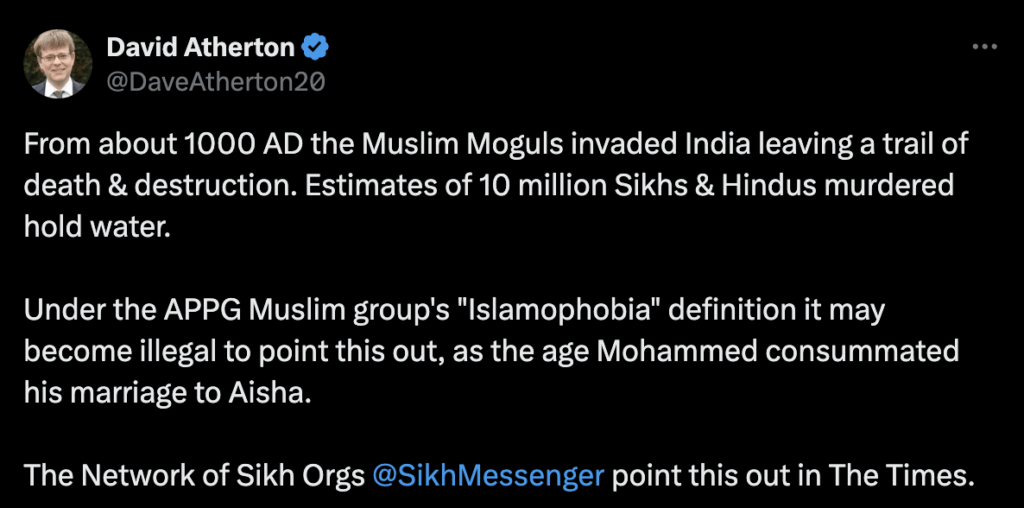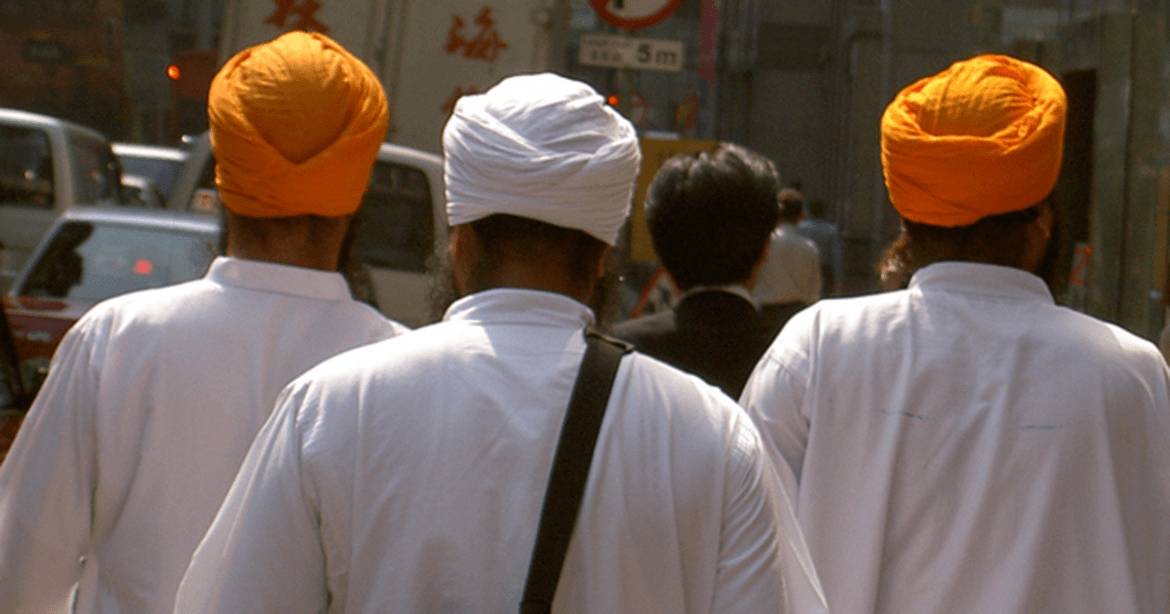AI Generated Summary
- We call on the government and lawmakers to reconsider this proposal, to engage in open dialogue with all communities, and to ensure that any laws enacted to protect religious groups are carefully crafted to avoid curbing free speech or rewriting history.
- In this light, it is deeply concerning to witness a growing movement that seeks to redefine Islamophobia in ways that could, paradoxically, silence valid historical truths and obscure important conversations about faith, power, and justice.
- If the British government adopts this broad definition, it could mean that criticism or analysis of Islamic practices or history is treated as a crime, while similar discussions about other faiths are allowed.
As a Sikh, I am proud of my heritage, one built on principles of justice, truth, and resistance against tyranny. Our history is intertwined with the defense of religious freedom, not just for Sikhs but for all communities. In this light, it is deeply concerning to witness a growing movement that seeks to redefine Islamophobia in ways that could, paradoxically, silence valid historical truths and obscure important conversations about faith, power, and justice.
The proposed definition of Islamophobia, currently being pushed by certain political groups in Britain, risks turning a tool meant to combat hatred into a form of censorship. It states that Islamophobia is “rooted in racism and is a type of racism that targets expressions of Muslimness or perceived Muslimness.” On the surface, this seems reasonable—no community should face bigotry for their beliefs. But a closer look reveals a problematic dimension: this definition would criminalize or delegitimize any critical discussion of historical Islamic conquests or its treatment of minority groups, past or present.
For Sikhs, this is a direct attack on our historical narrative. Our faith reveres a long lineage of martyrs who resisted forced conversions during the Mogul empire. Our ninth Guru, Tegh Bahadur, laid down his life to protect Hindus from persecution by the Islamic ruler Aurangzeb. Our fifth Guru, Arjan, was tortured and killed for refusing to convert. To suggest that discussing these well-documented events could be seen as ‘racist’ under this new definition is deeply troubling. Are we to erase our own history to avoid offending others?

This is not just a theoretical concern. Under the proposed definition, key moments in Sikh history would be considered acts of “Islamophobia” for acknowledging that Islam, like many religions, has been historically spread through coercion and force at times. Islam’s expansion by the sword—whether in the Indian subcontinent or across other regions—cannot be denied. But according to this broad and sweeping definition, even factual statements could be interpreted as “racist,” thereby silencing vital historical truths.
Our concerns are not unique. Across the globe, minority religious communities—Christians in Nigeria, Hindus and Sikhs in Afghanistan, Yazidis in Iraq—have suffered under oppressive interpretations of Islam. These are contemporary realities, not ancient grudges. If this definition is enshrined into law, speaking up about such atrocities might be labeled as bigotry. The truth would be deemed offensive, and truth-tellers persecuted.
The Sikh community in Britain has always stood against bigotry in all forms, including Islamophobia. We recognize the struggles of our Muslim brothers and sisters, particularly in the face of rising far-right extremism and attacks on mosques. But conflating legitimate historical discussion with racial hatred is a dangerous precedent. If we cannot speak truthfully about our past, we will have no foundation on which to build our future.
Some proponents of this definition argue that it is necessary to protect Muslims from systemic discrimination. But protection should not come at the cost of intellectual freedom or historical accuracy. We must find ways to combat hate that do not suppress genuine discourse. To do otherwise would be counterproductive, causing division where unity is needed, and fostering resentment rather than understanding.
Furthermore, adopting this definition risks creating a dangerous hierarchy of religions, where some faiths are afforded greater legal protection than others. If the British government adopts this broad definition, it could mean that criticism or analysis of Islamic practices or history is treated as a crime, while similar discussions about other faiths are allowed. This would undermine the very pluralism that Britain strives to protect.
The Sikh community will not stand by as our history is distorted or silenced. We call on the government and lawmakers to reconsider this proposal, to engage in open dialogue with all communities, and to ensure that any laws enacted to protect religious groups are carefully crafted to avoid curbing free speech or rewriting history. The solution to hatred is not censorship; it is understanding.
If Britain truly values freedom and justice, it must find a way to protect all communities from discrimination without sacrificing the right to speak the truth.
The opinions expressed in this article are those of the author. They do not purport to reflect the opinions or views of Khalsa Vox or its members.




